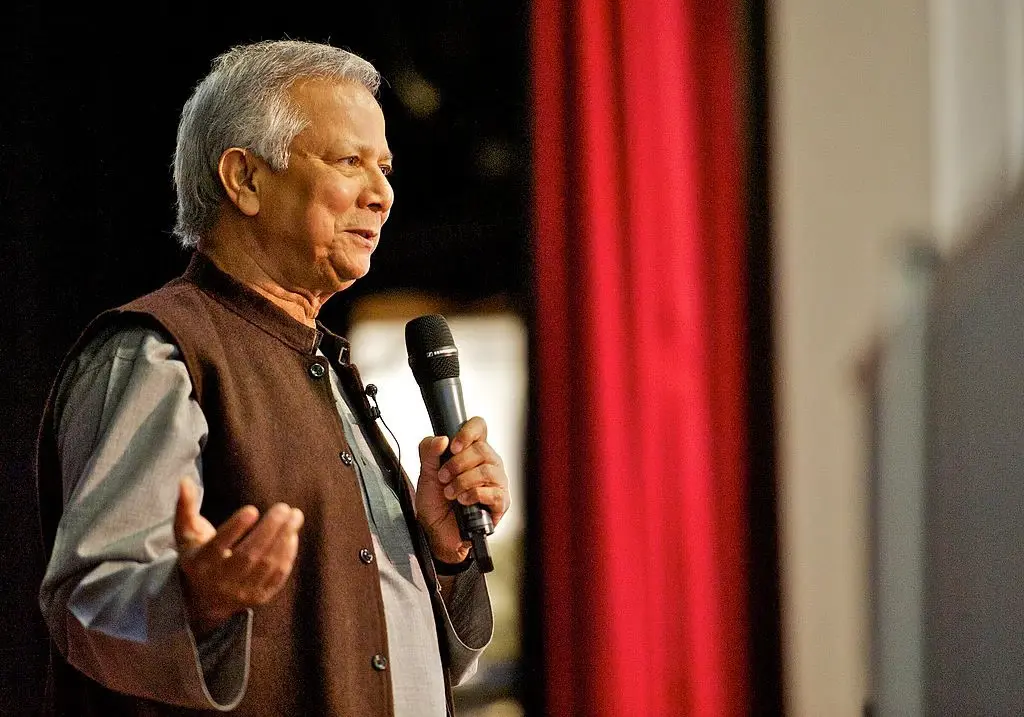Bangladesh will maintain support both for its immense Rohingya refugee population and its vital garment trade, Nobel laureate and new leader Muhammad Yunus said on Sunday in his first major policy address.
Yunus, 84, returned from Europe this month after a student-led revolution to take up the monumental task of steering democratic reforms in a country riven by institutional decay.
His predecessor Sheikh Hasina, 76, had suddenly fled the country days earlier by helicopter after 15 years of rule.
Setting out his priorities in front of diplomats and UN representatives, Yunus vowed continuity on two of the biggest policy challenges of his caretaker administration.
“Our government will continue to support the million-plus Rohingya people sheltered in Bangladesh,” Yunus said.
“We need the sustained efforts of the international community for Rohingya humanitarian operations and their eventual repatriation to their homeland, Myanmar, with safety, dignity and full rights,” he added.
Bangladesh is home to around one million Rohingya refugees.
Most of them fled neighboring Myanmar in 2017 after a military crackdown now the subject of a genocide investigation by a United Nations (UN) court.
The weeks of unrest and mass protests that toppled Hasina also saw widespread disruption to the country’s linchpin textile industry, with suppliers shifting orders out of the country.
“We won’t tolerate any attempt to disrupt the global clothing supply chain, in which we are a key player,” Yunus said.
Bangladesh’s 3,500 garment factories account for around 85% of its $55 billion in annual exports.
Yunus won the Nobel Peace Prize in 2006 for his pioneering work in microfinance, credited with helping millions of Bangladeshis out of grinding poverty.
He took office as “chief adviser” to a caretaker administration — all fellow civilians bar two retired generals — and has said he wants to hold elections “within a few months”.
Before her ouster, Hasina’s government was accused of widespread human rights abuses, including the mass detention and extrajudicial killing of her political opponents.
She fled the country on August 5 to neighboring India, her government’s biggest political patron, and benefactor, when protesters swarmed into the capital Dhaka to force her out of office.




